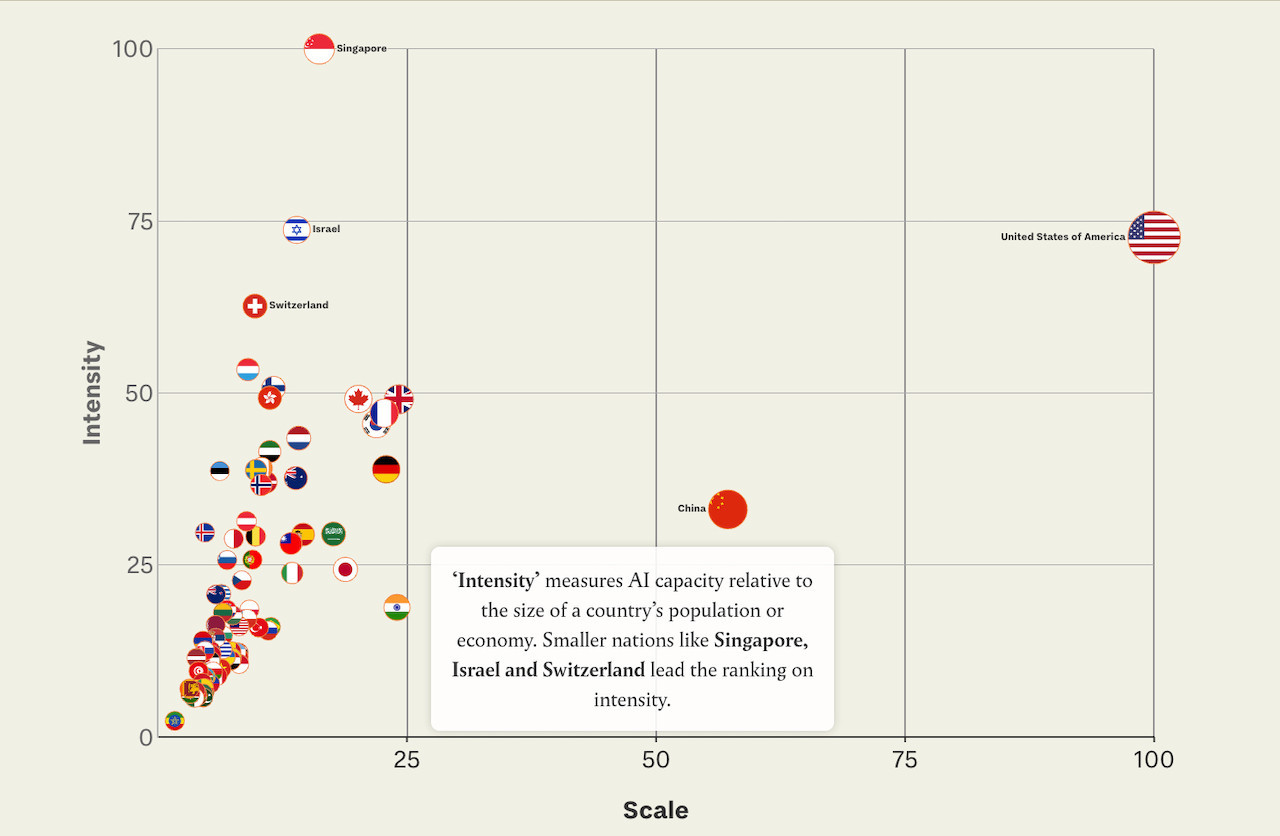“To capture the next wave of benefits from artificial intelligence in society, Luxembourg needs to promote innovation, invest in skills and ensure clear rules.”
On the very first page of its report, which came out in June and has remained relatively confidential, Implement Consulting Group sets the scene: Luxembourg could expect to boost its GDP by €6bn to €8bn compared to 2022 (+9%) at the peak of technological adoption of GenAI, between 2028 and 2034.
The slightest delay of five years would reduce this potential to €1bn or €2bn, say the consultants from this company, which is based in northern Europe, Switzerland and Germany, and which compiled this report for Google.
These figures are based both on the Luxembourg context and on five academic studies that predict an impact on productivity of between 2 and 6.8 percentage points per year after the adoption of GenAI. Most of this ‘bonus’ would come from the increase in productivity of 72% of employees (€5.5bn to €6.5bn), with the remainder coming from the difference between the upskilling of other employees, their re-employment and the elimination of jobs. The increase in productivity in Luxembourg would be 1.6% per year at the peak of the change.
20,000 jobs lost, 30,000 created each year
According to the authors of the report, 22% of jobs (115,000) are not exposed to the slightest degree of automation (construction, cleaning activities, healthcare or catering and jobs involving relationships with others), while 72% are exposed to varying degrees (around 370,000 jobs) and 6% (30,000 jobs) will change considerably or completely.
The issue seems to be less about job losses than about training employees already working in Luxembourg, including cross-border commuters, since the report predicts 20,000 job losses every year from 2035... but also the creation of 30,000 new jobs annually.
Three out of four employees in Luxembourg are already aware that AI will have an impact on their jobs, an average that places the country among the European ‘leaders,’ with a statistic that takes on a positive connotation for those who have used an AI-enabled application in the last year and for the most highly qualified workers.
67% of Luxembourg employees are convinced that AI will enable them to make informed choices in the face of the climate crisis, 64% think that it will help them to reduce their CO2 emissions and one in two support the use of their medical data to develop intelligent solutions in a context where there is a shortage of doctors and health or care staff.
While fewer employees than those in economies competing with Luxembourg are using AI in their jobs at the moment, more companies want to invest in automation solutions within five years (59%) and almost as many think it will have an impact on their productivity (58%).

In terms of AI capabilities relative to population size, Luxembourg (pictured top left) ranks fifth in the world. Source: Tortoise Media
The picture isn’t so bad in itself. So where does Luxembourg need to improve? The consultants at Implement Group base their analysis on the Tortoise Media index... which was updated on 19 September. Luxembourg is ranked 19th in the world and has fallen back in five of the seven categories (except for talent and research), compared with the 2023 ranking. Or maybe it’s the others who are advancing faster than us.
The most ‘delicate’ point concerns the government’s strategy (33rd place)... but since the branding of 2019 between then prime minister, (DP), and then economy minister (LSAP), each presenting to the press , nothing serious has happened. Asked to deal with emergencies during his first year in office, prime minister (CSV) is expected to publish an update or a new AI strategy based on the latest developments by next spring. The coalition agreement also announced a strategy on quantum computing.
Six recommendations
The report makes six recommendations:
- capitalise on the infrastructure and research initiatives to develop more global partnerships around AI-based products and on the current strategic vision to be a leading and connected hub in applied research around AI;
- provide more targeted research and support for start-ups in the fields of finance and health, “where the country would benefit from drawing inspiration from successful academic models such as Amsterdam and Helsinki”;
- increase state support for initiatives such as Eureka AI clusters to increase the integration of artificial intelligence in SMEs;
- use the Luxinnovation strategy for 2022-2025 to strengthen links with innovation hubs and encourage synergies, via public policies, between start-ups, traditional companies and global players such as Nvidia;
- address the issue of AI skills for SMEs and specialist activities;
- have an explicit strategy that facilitates coherence, transition and training.
And six examples
What could be considered a seventh recommendation is to take inspiration from the policy choices of some other leaders in the sector, such as:
- , a software research centre that brings together 200 specialist researchers;
- ; or (a kind of open public), which brings together all public documents;
- , developed on the Finnish supercomputer Lumi;
- ;
- ;
- , in particular .
This article was originally published in .
